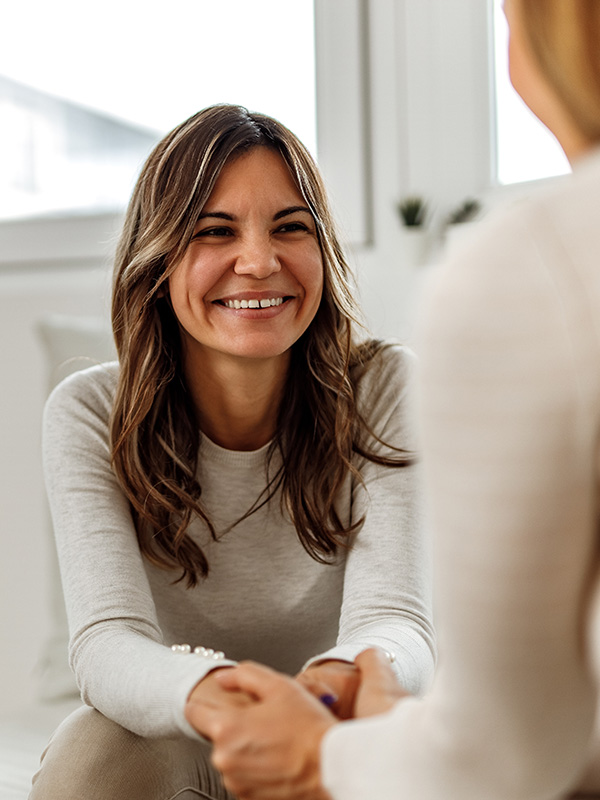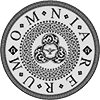Conditions we treat
Depression Management at Omnia in London
How can our treatments help you?
Conditions we treat
Depression Management at Omnia in London
How can our treatments help you?

We can help…
Depression is a complex mental health condition that affects millions worldwide. Depression is more than just feeling sad; it’s a mental health disorder that can impact mood, energy, thoughts, and overall quality of life. From mild to severe cases, Depression affects individuals differently.
In this guide, we delve into the transformative power of Ayurveda, Yoga, Acupuncture, Photobiomodulation, and Compression Therapy as potential treatments, offering insights into how they work to alleviate symptoms and restore emotional well-being.
1. Ayurveda:
Ayurveda, an ancient healing system, believes that imbalances in the body’s energies contribute to mental health issues. Ayurvedic treatments for Depression, focus on restoring harmony and emotional well-being. Ayurvedic therapies like Shirodhara, Abhyanga, Nasya, Shirovasthi, etc., can be performed to balance the vitiated mano Doshas. This helps in maintaining relaxation and freedom from depression.
- Diet and Nutrition: Ayurvedic nutrition emphasises foods that promote mental clarity and emotional balance.
- Herbal Remedies: Certain herbs are believed to have mood-enhancing and adaptogenic properties.
- Mind-Body Practices: Meditation and relaxation techniques support emotional well-being.
At a Glance
Therapies we offer to help manage Depression:
2. Yoga:
Yoga’s integration of physical postures, breath control, and meditation offers a holistic approach to managing Depression. It promotes relaxation, stress reduction, and emotional healing.
- Asanas for Well-Being: Yoga poses enhance flexibility, release tension, and encourage a positive mind-body connection.
- Breath Awareness: Pranayama techniques provide calming effects and support emotional balance.
- Mindfulness Meditation: Meditation fosters emotional healing and mental clarity.
3. Acupuncture:
Acupuncture, a traditional Chinese therapy, involves stimulating specific points to balance the body’s energy flow. It can help alleviate symptoms like anxiety, restlessness, and emotional distress.
- Mood Regulation: Acupuncture may assist in regulating mood and reducing symptoms of Depression.
- Stress Relief: Acupuncture’s calming effect contributes to emotional well-being.
4. Photobiomodulation:
Photobiomodulation uses light therapy to stimulate cellular processes, potentially promoting brain health and emotional resilience.
- Neurotransmitter Support: Light therapy may influence neurotransmitter levels associated with mood regulation.
- Stress Reduction: Photobiomodulation’s anti-inflammatory effects may contribute to emotional balance.
5. Compression Therapy:
Compression Therapy involves applying gentle pressure to specific areas of the body. While not a direct treatment for Depression, it can contribute to relaxation and emotional well-being.
- Stress Reduction: The calming effect of compression therapy may alleviate anxiety and promote relaxation.
At Omnia Lifestyle, our skilled practitioners are dedicated to weaving these holistic therapies into personalised treatment plans. Our goal is to empower individuals on their journey to emotional well-being, fostering holistic health at every level.
“Professional and friendly staff. Very high standards of customer care and service.”
E O – September 2023
“Excellent place to treat your pain, staff is very pro and friendly. It is definitely worth a try.”
M G – September 2019
“It was a pleasant and professional experience.”
S D – August 2019
What to do next
At Omnia Lifestyle, we believe in a holistic approach to help manage Depression. Our experienced practitioners are skilled in combining these diverse techniques to develop a personalised treatment plan that suits your or a loved one’s needs. Contact us today to embark on a journey towards lifestyle changes and overall well-being.
Alternatively you can arrange a convenient date/time for your consultation:
Frequently Asked Questions (FAQs)
Session lengths can vary based on the specific treatment and area being treated, but they typically range from a few minutes to around 20-30 minutes.
Herbs can be a powerful adjunct to Acupuncture therapy. They are used to strengthen, build and support the body or clear it of excess problems like a cold, fever or acute pain. To build up your internal strength, your Acupuncturist may suggest starting with herbs and then undergo Acupuncture for a better outcome.
The number of sessions required varies depending on the condition being treated and individual response. Some people might experience benefits after just a few sessions, while others might need a greater number of sessions to achieve the desired results.
There can be a detox effect, which can take the form of mild flu-like symptoms or a rash. This is usually a normal reaction and indicates that the herbs are doing their job. Sometimes the reaction can be stronger, and usually, the practitioner makes an adjustment in the dosage. It is important to make your practitioner aware of any known allergies.
While generally safe, Photobiomodulation may present contraindications for individuals with conditions such as claustrophobia, photosensitivity, active skin infections or cancerous lesions, photosensitive seizure, and pregnancy. We recommend consulting a healthcare professional before undergoing any treatment.
Treatment frequency and the number of treatments needed depend on several factors: your constitution, mental state, the severity and duration of the health condition, and lifestyle habits. Occasionally, the pain relief can be felt immediately after treatment, but for lasting and effective results, a minimum of 4–6 treatments are recommended. Chronic conditions usually take longer to resolve than acute conditions.
Side effects are rare and generally mild. They might include temporary redness, slight discomfort, or irritation in the treated area. These effects usually subside quickly.
If you have been prescribed medication, we recommend that you inform your GP that you are considering Ayurveda therapy. You should continue your regular medication. During the initial consultation, your Ayurveda consultant will advise you of contraindications such as high fever and severe renal and cardiac diseases. You may also be referred to your GP if the Ayurvedic physician treating you recognises a risk during your consultation or even after treatment.
The duration of effects can vary based on the individual, condition treated, and maintenance. Some people experience longer-lasting results with consistent treatment.
In Ayurveda, sesame oil is considered the queen of all oils because it has active principles that produce health benefits. Cured sesame oil should be used for this purpose, as the heating converts weak antioxidants into a potent antioxidant substance known as sesamol. Moreover, medicated herbal oils are used to treat specific conditions. For example, for arthritic problems, oils containing herbs that are Vata and Kapha-pacifying and have anti-inflammatory properties will be used. For anxiety, herbs possessing adaptogenic action, such as Ashwagandha, will be used.
Insurance coverage varies. Some medical conditions and contexts might receive coverage, but you should check with your insurance provider.
There is no harm in keeping oil on your skin or hair for a long period of time. However, you can remove the oil immediately after the treatment. We also have a shower facility, if required.
Yes, the Body Ballancer is generally safe and suitable for most people. However, individuals with certain medical conditions or concerns should consult a healthcare provider before using it.
A standard session typically lasts around 30 to 50 minutes, during which the compression garments (either a jacket or pants) are worn over the targeted areas.
Users often describe the sensation as a gentle, rhythmic massage. The compression cycles create a soothing and relaxing experience.
Yes, it is safe for children and babies. In some cases, children respond more quickly to acupuncture than adults. If your child has an aversion to needles, the practitioner may recommend Acupressure or Tui Na Massage.
Two independent surveys published in the British Medical Journal (BMJ) concluded that the risk of serious adverse injury from acupuncture is less than 1 in 10,000, significantly less than most conventional treatments. The needles used are single-use, sterile, and disposable.
The number of sessions varies based on individual goals and needs. However, it is generally recommended to undergo a series of sessions, often spanning a few weeks, to achieve the desired results.
Treatment frequency and the number of sessions required depend on several factors, including your constitution, mental state, the severity and duration of the health condition, lifestyle habits, and the quantity and quality of your Qi. Acupuncturists believe that health determinants are unique to each individual. Typically, some change is noticed within 5 or 6 treatments, although occasionally 1 or 2 treatments may suffice. Chronic conditions typically require more time to resolve than acute ones.
While the Body Ballancer is safe for most people, individuals with certain conditions like deep vein thrombosis, severe circulatory disorders, or recent surgery might have contraindications. Consulting a healthcare professional is advisable.
If you have been prescribed medication, we recommend that you let your GP know that you are considering acupuncture therapy. You should continue your regular medication. During the initial consultation, your acupuncturist will advise you of any contraindications, such as metal allergy, haemophilia, or if you take strong anti-coagulant medication. You may also be referred to your GP if the acupuncturist treating you recognizes any risks during your consultation or even after treatment.
Wear comfortable clothes such as legging with socks for the lower body and a soft, long-sleeved top for the upper body. For hygiene reasons, we advise against bare skin. It is advisable to empty your bladder before and after the treatment.
Many people avoid acupuncture because they think needles will hurt. Acupuncture needles are very small in diameter, approximately twice as large as the average diameter of human hair and 10 times smaller than the average diameter of a standard hypodermic needle. Most people find acupuncture calm and relaxing. Patients often describe the needle sensation as a tingling or dull ache. This is a sign that the Qi is being stimulated and released, indicating that the treatment is working. At Omnia, we also offer Electroacupuncture and Fu Needle treatments, which minimise any fear or discomfort caused by needles.
Yes, the pressure levels can often be adjusted to suit individual preferences and comfort levels during the session.
Acupuncture is sometimes available on the NHS from GP practices and physiotherapists, as well as in most pain clinics and hospices in the UK. Most acupuncture patients pay for private treatment. As the demand for complementary medicine increases, more private health insurance companies such as AVIVA and BUPA are beginning to offer coverage for acupuncture.
In conventional massages, therapists usually target the muscles, often using deep massage techniques to reach the muscular layer. In contrast, lymphatic drainage massage is specifically aimed at the delicate lymphatic vessels and nodes located just beneath the skin. This approach requires only gentle pressure to encourage fluid movement. Therefore, if you’re dealing with issues such as water retention, bloating, cellulite, or poor skin tone, traditional massages may not achieve the desired results. Our state-of-the-art Body Ballancer system is designed to alleviate conditions such as water retention, bloating, cellulite, and poor skin tone.
The tongue acts like a barometer, reflecting the health and well-being of your internal meridians and organs. The Acupuncturist will look at the general characteristics of the tongue such as colour, shape, cracks and coating on it to get an idea of how your body is functioning on a macro level.
Yes, Photobiomodulation is considered safe when used appropriately. The light used in these treatments is non-ionising and generally doesn’t cause harm. However, it’s important to follow proper guidelines and consult a healthcare professional if you have concerns.
There are 12 pulse positions on each wrist that the Acupuncturist will palpate. Each position corresponds to a specific meridian or organ system. An Acupuncturist observes the quality of your pulse looking for certain characteristics that reflect your overall health such as pulse rate and strength and the width of each pulse. This allows the Acupuncturist to pinpoint which imbalance is causing the symptom of the disease.
Photobiomodulation is usually painless. Patients might feel a mild warmth or tingling sensation during the treatment, but it’s generally well-tolerated.


